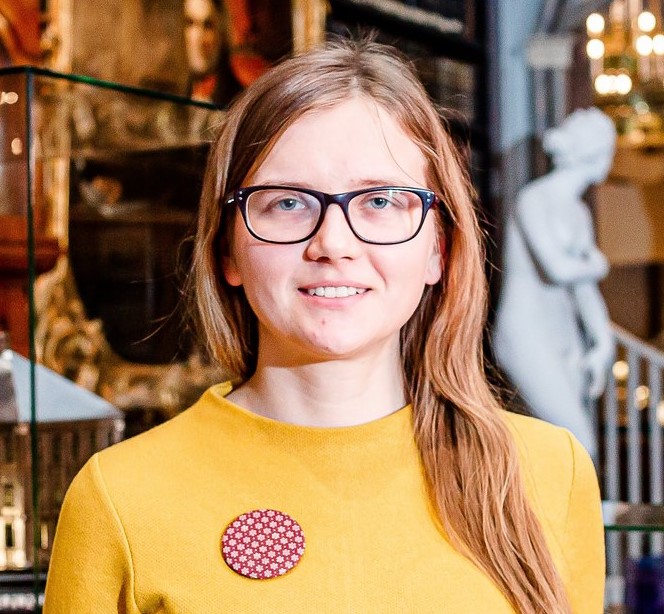OPEN CALL: Transfer võrgustike teine laine
Edited on
06 April 2021Kasuta URBACTi metoodikat, et mõista, kohandada ja (taas)kasutada URBACTi häid praktikaid, mis on juba läbi proovitud Transfer võrgustike esimeses laines.

Mida oodata?
Pärast edukat pilootprojekti alustas URBACT 2018. aastal Good Practice Transfer võrgustikega. Esmalt valiti pärast avatud kandideerimisprotsessi välja 97 hea praktika linna üle Euroopa, millest vailiti välja 23 linna, kes asusid juhtima Transfer võrgustikke. Need 23 võrgustikku on õige pea lõpetamas oma teekonda, nii et URBACT on otsustanud algatada projekti teise laine – väiksem hulk hea praktika linnu alustab uut võrgustikku uute partnerlinnadega.
Transfer võrgustike teine laine annab võimaluse veel rohkemale arvule Euroopa linnadele kohandada ja kasutada välja valitud häid praktikaid. Hea praktika linnal on koostöös URBACTi eksperdiga eelmisest võrgustikust laialdased kogemused, mis loob varasemast veelgi paremad võimalused edukaks teadmiste vahetuseks. Võrgustikus osaledes ootab ees põnev teekond, mis annab kohalikule omavalitsusele võimaluse muuta senist töökorraldust ja arusaama tööprotsessidest, kaasab erinevaid osapooli ja loob kohalikul tasandil reaalset mõju. Kogu võrgustiku töö on rajatud URBACTi metoodikale, mida aastate jooksul on katsetanud ja täiustanud juba mitmekümned erinevad võrgustikud ja linnad.
Kuidas kandideerida?
- Loe läbi Terms of Reference ja Guide to Transfer Networks – Second Wave
- Võta ühendust Eesti URBACT kontaktpunktiga, et leida hea praktika linn, kes otsib parasjagu partnereid
Hetkel on Eesti kontaktpunktiga ühendust võtnud ja oma huvi Eesti linnade vastu üles näidanud järgmised linnad:
- Mouans-Sartoux võrgustikust BioCanteens – neid huvitavad eriti omavalitsused, kes pole seni URBACTi võrgustikes osalenud ning kes haldavad toitlustuteenust, näiteks koolisööklaid ning on huvitatud jätkusuutlikuse teemast toitlustuses.
BioCanteens Transfer Network is about ensuring the distribution of sustainable school meals in participating cities as a key lever towards the development of an integrated local agri-food approach, protecting both citizens’ health and the environment. The project aims to transfer Mouans-Sartoux’s Good Practice in the field of collective school catering and local sustainable food policy, to other highly committed cities across Europe.
Mouans-Sartoux’s Good Practice is based on the daily distribution of meals that are 100% organic and mostly composed of local products, the drastic reduction of food waste thereby fully compensating the higher cost of switching to organic products, the organisation of dedicated educational activities to raise children’s awareness about sustainable food, the creation of a municipal farm that supplies the school canteens with vegetables, and a strong focus on food sovereignty and governance.
The Lead Partner, together with the network's Lead Expert François Jégou, developed a full-fledged working methodology that will be re-used in BioCanteens#2. Partners will be invited to work on a wide variety of topics ranging from "micro-good practices" in school kitchens or for food education, to make their public procurement more sustainable, supporting the installation of farmers at city level, building up a more participatory food governance... Importantly, the aim of this network is not to copy-paste what Mouans-Sartoux has done on its territory as local situations are mutlifold and relevant solutions may differ across partners.
BioCanteens (2018-2021): https://urbact.eu/biocanteens
Mouans-Sartoux's Good Practice: https://www.youtube.com/watch?
- Piraeus võrgustikust BluAct – nad otsivad ranniku/sadamalinna.
The BluAct project follows the success of Blue Growth Piraeus initiative, an awarded blue economy entrepreneurship competition that offers recognition and incubation services to start-ups and businesses, boosting local innovation and job creation in coastal cities around Europe. Through BluAct, the 6 partner cities of phase 2 managed to adapt and transfer the experience of the Blue Growth initiative and implement blue economy entrepreneurship competitions in their cities. Through an approach of creating Local Support Groups and engaging local stakeholders and other interested parties, the ultimate aim of the BluAct network is to “start-up the blue economy” in coastal European cities and rediscover their valuable connection to the sea.
- Barnsley võrgustikust TechRevolution – nad otsivad üle 50 000 elanikuga linna, kes pole varem URBACTi võrgustikus osalenud ning on huvitatud digitaalsest ja tehnoloogilisest arengust majanduses.
Since 2019 Barnsley (UK) has led an URBACT network called TechRevolution which shares the ‘good practice’ of the Digital Media Centre in Barnsley and our Enterprising Barnsley business support approach. You can read more about the good practice here: https://www.techplace.online/
- Amadora võrgustikust Rumourless Cities – nad otsivad partnerlinnu hoolimata sellest, kas ollakse varasemalt URBACTi võrgutikes osalenud või mitte.
Amadora has been leading one of the 23 networks called Rumourless cities. The good practice that Amadora has developed relates to developing local campaigns to tackle negative stereotypes of migrants/asylum seekers/third country nationals. The Municipality of Amadora has developed a good practice which is called “Don’t Feed the Rumours”. It has developed this to counter negative views of immigrants and refugees such as:
• “Immigrants are linked to crime and radicalisation”,
• “Immigrants live off grants from the state” or
• “Foreign children only bring problems to the schools”.
These are just some of the negative views that are spread about immigrants.
You can find out more here: https://urbact.eu/rumourless-cities.
- Terms of Reference - Transfer Networks - Second Wave - Application procedure
- URBACT III Programme Manual
- URBACT III Operational Programme
- Guide to Transfer Networks - Second Wave
- Transfer Networks - Second Wave - Budget Table (Excel file to be downloaded)
 Submitted by Madli-Johanna Maidla on
Submitted by Madli-Johanna Maidla on
